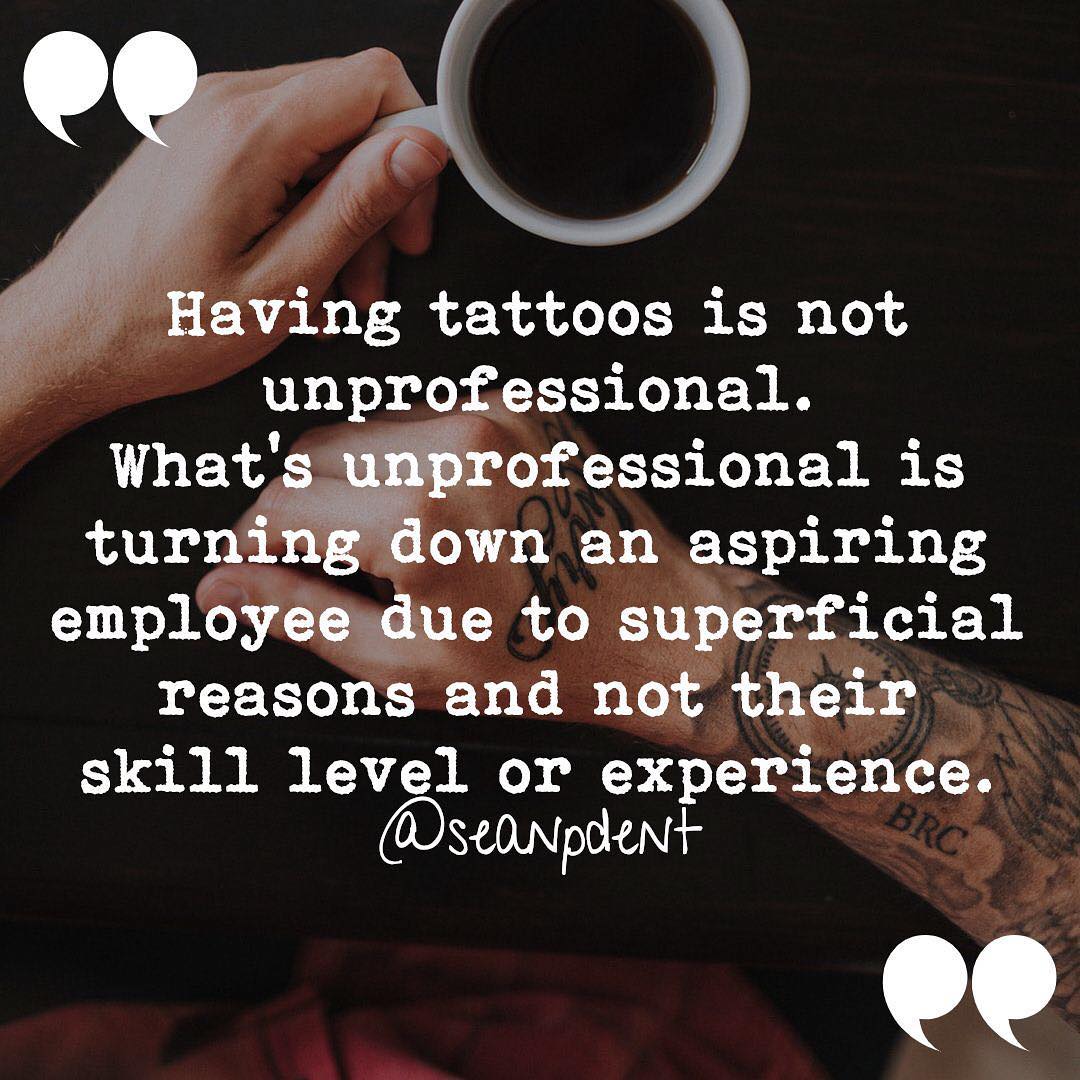Do you know the difference between a tattooed and non-tattooed person? The tattooed person doesn’t care that you don’t have tattoos.
Nurses who have tattoos. Are they any less professional? Do they provide a lower quality of care?
Does professionalism have anything to do with art on your skin??
Before you answer… let’s throw a couple more logs onto the fire.
The public’s perception is their reality. Do tattoos change the nurse-patient relationship?
Oh, and what about employers requiring nurses (and other Health Care professionals) to cover up tattoos? (We’ll come back to this shortly)

I’m a professional. I’m a nurse practitioner. I’m a health care provider. And I have tattoos (yes more than one). I have an admittedly biased, but honest belief that tattoos do not make the person. The person makes the tattoos.
Up until recently, all of my tattoos were hidden from plain sight under my work uniform. I would chuckle at the reactions from people who knew me through my professional life and then discovered that I have tattoos.
“*GASP* YOU have a tattoo??!!”
I’m sure I read into their reaction a bit, but it gives the impression that they’re shocked that ‘I’ have a tattoo. The ‘professional’. The health care provider. (I mean… Sean… you just don’t LOOK like a tattoo person)
Weird. What DOES a “tattoo person” look like then? Hmm.
Yes. I have tattoos. I’ve had them most of my adult life and each one of them told a story in my book.
I’ve blogged about this topic a number of times over the past decade. I don’t feel it makes me any less of a professional. It doesn’t diminish the quality, nor nullify the work I do. It’s simply an expression of me. Each tattoo represents something in my life (no matter how poor or how faded the tattoo may be).

With all that being said, the culture and profession that we currently live in continue to change and adapt. Less than ten years ago, visible tattoos in the workplace were viewed negatively and dare-I-say not accepted.
Tattoo = bad person (untrustworthy, unsafe, uneducated)
Not to mention the workplace just wasn’t having it, at least not in the world of health care. If you had a visible tattoo while in uniform, you had to cover it up.
Until now.
These days visible tattoos are almost the norm and seeing tattoos in the workplace barely bats an eye. While some employers still require employees to cover visible tattoos, others are at the forefront of embracing change:
Nurses with pink hair and tattoos? Why this hospital system is changing the rules
Here’s where things get interesting (with me). Remember I said I’ve blogged about this topic previously? These are the words I wrote back in 2009:
Now, I must also admit that there should be a certain balance when it comes to tattoos in the professional world. Part of being a professional is maintaining a certain level of professionalism, more specifically your appearance. I feel that tattoo sleeves, neck and hand tattoos can be a bit much for my patients. In that same respect, I also think dangly earrings, over-the-top body piercings (non-traditional I guess), unkempt facial and head hair, tattered clothing and lack of personal hygiene are also not ideal appearance qualities for the professional. So take my opinion with a grain of salt.
As times have changed, so have I. Not only is the public embracing tattoos in the workplace, but I have changed my mind about them. I don’t have a specific incident that changed my mind, I can only tell you I’ve gone from not fully embracing visible tattoos on other professionals, to having my own tattoo sleeve.
Yep. Change is the only constant thing.
Oh, you KNOW I had to do a video. I did this video a while back:
A tattoo artist discussing his art…
What to you think? Do tattoos matter in the world of healthcare? And is one’s opinion swayed by having tattoos?
Reach out to me on any of my platforms. I visit Instagram daily.
If you found this valuable, maybe you’ll buy me a cup of coffee? http://bit.ly/seanscoffee
You know how much I love coffee.
Check out all my other videos on my YouTube channel. Almost 500 free videos http://bit.ly/seanpdenttv
**Follow me on Instagram: @seanpdent
**Let’s continue the conversation: http://bitly.com/thenursetribe
**Have a question? http://bit.ly/askheysean
The views and opinions expressed on this website, videos or posts on this channel are that of myself and not of any educational institution. In compliance with HIPAA and to ensure patient privacy, all patient identifiers in all content have been deleted and/or altered. The views expressed on this website and/or in the videos on this channel are personal opinions only, not intended as medical advice. The information I present is for general knowledge purposes only.
** may contain affiliate links
Find all of my recommended products and the gear I used in my videos at http://www.amazon.com/shop/seanpdent






